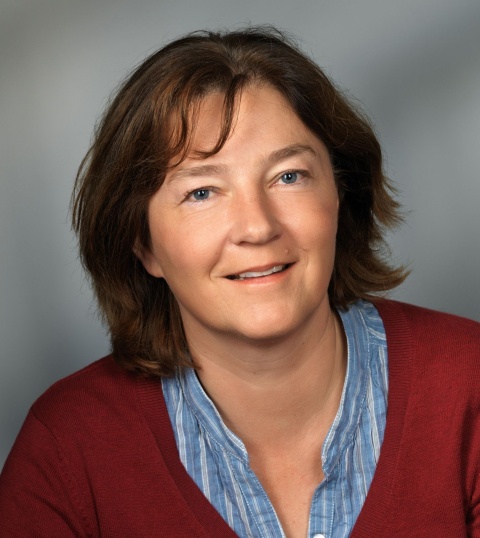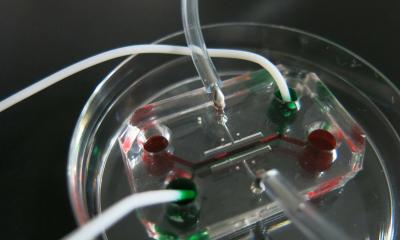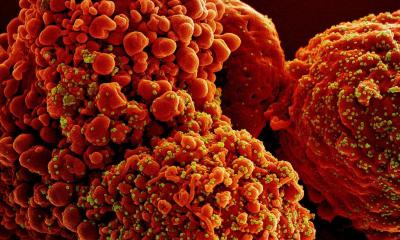Interview • From step-child to limelight
Virologists: Interdisciplinary and global cooperation is vital
Over recent years, virology, once medicine‘s step-child, moved into the limelight, pushed by impressive progress and pulled by globalisation-induced need for expertise in virus diagnostics and viral epidemics.
Report: Walter Depner

In the run-up to the annual congress of the European Society for Clinical Virology (ESCV) in Stresa, Italy (September 2017), EH spoke with past ESCV president Professor Elisabeth Puchhammer-Stöckl, deputy director of the virology department at Vienna’s Medical University.
Asked how the clinical virologist job description has changed over recent years, Professor Elisabeth Puchhammer-Stöckl, from Vienna’s Medical University, agreed that this has indeed changed. ‘During the past decade or so, many new diagnostic tests were developed and many viruses were identified. Thus we have much more complex tools today to detect viral infections. Qualified experts in virology and virus diagnostics are important for patient management in a hospital setting. With an increasing number of very good therapies for certain viral infections antiviral resistance is gaining importance. Today, virologists need in-depth microbiology knowledge. In view of the increasing mobility of people worldwide we also have to be familiar with viral epidemics across the globe and we need a tight global network.’
Do you already know which top topics will be at the ESCV congress, or will you decide depending on developments, such as the avian flu virus?
‘At congress we usually deal with certain topics in clinical virology that are always important, such as respiratory viral infections or viral infections in immunocompromised patients. In addition, we always include current issues and invite experts at short notice. That will be the case in Stresa.’
What results do you expect from this event?
‘The congress will offer international training for clinical virology; it will cover cutting edge diagnostics, epidemiology, therapy or vaccinology, and the newest results in basic research will be presented – and obviously the congress is an important networking forum for the colleagues.’
In healthcare ‘interdisciplinarity’ is increasingly important. What does that mean for virology today?
‘Interdisciplinary cooperation is crucial. For example, take viral infections in immunocompromised transplant patients. Efficient cooperation between transplant surgeons, internal medicine specialists, microbiologists and virologist is essential for the patient’s long-term survival. But cooperation with paediatricians or gynaecologists, for example, is equally important.’
The same holds true for globalisation. An isolated country loses relevance. How important is international cooperation in your discipline?
‘Globalisation facilitates international networks – and they are very important in virology. Rapid dissemination of news and data on epidemics across our network, international cooperation with regard to the identification and analysis of viruses, joint efforts to combat viral infections – all this is invaluable. As we have seen in the cases of SARS, it is highly successful.’
From a virologist’s viewpoint, should mobility be restricted or changed; and if so, how?
‘I don’t think so. Travellers should be comprehensively informed about the infection risk in their destination. Competent travel information and targeted risk assessment for the individual traveller are desirable.’
How close is the cooperation among virologists in Europe? Are there joint research projects?
We hope to be able to encourage our Russian colleagues to join the European network
Elisabeth Puchhammer-Stöckl
‘Thanks to ESCV, virologists cooperate closely. ESCV not only organises the annual meetings but it also organises and funds specific workshops throughout Europe. We conducted a very successful workshop in Regensburg on congenital viral infections, on new methods in virus diagnostics in Vienna and Istanbul, on virus serology in Trondheim or recently the enterovirus workshop in Oxford.
These workshops are primarily open to ESCV members and only a small fee is charged. The small participant groups have two days to look intensively into a certain topic, with experts on their side. There is time to discuss basics as well as clinical and diagnostic guidelines, clinical case studies are presented and the virologists have the opportunity to network in an amicable environment. We have our first workshop soon on viral infections in transplant patients scheduled in St Petersburg and we hope to be able to encourage our Russian colleagues to join the European network.’
Today, Europe is a small part of the globalised world – which means international cooperation must intensify. Does this work well?
‘There are numerous global networks. We European virologists have a sister association, the Pan-American Society of Clinical Virology, with which we are in constant exchange. Moreover the virologists have international networks of their individual specialisations such as HIV, hepatitis or herpes viruses.’
Profile:
Professor Elisabeth Puchhammer-Stöckl is deputy director of the Department of Virology at Vienna’s Medical University in Austria where she, inter alia, heads research teams focusing on viral infection in immunocompromised patients; development of viral resistance against antiviral therapies and the development of new methods in virus diagnostics. The professor is a member of several European scientific committees and on the peer review board of several international journals and EU projects.
28.08.2017











